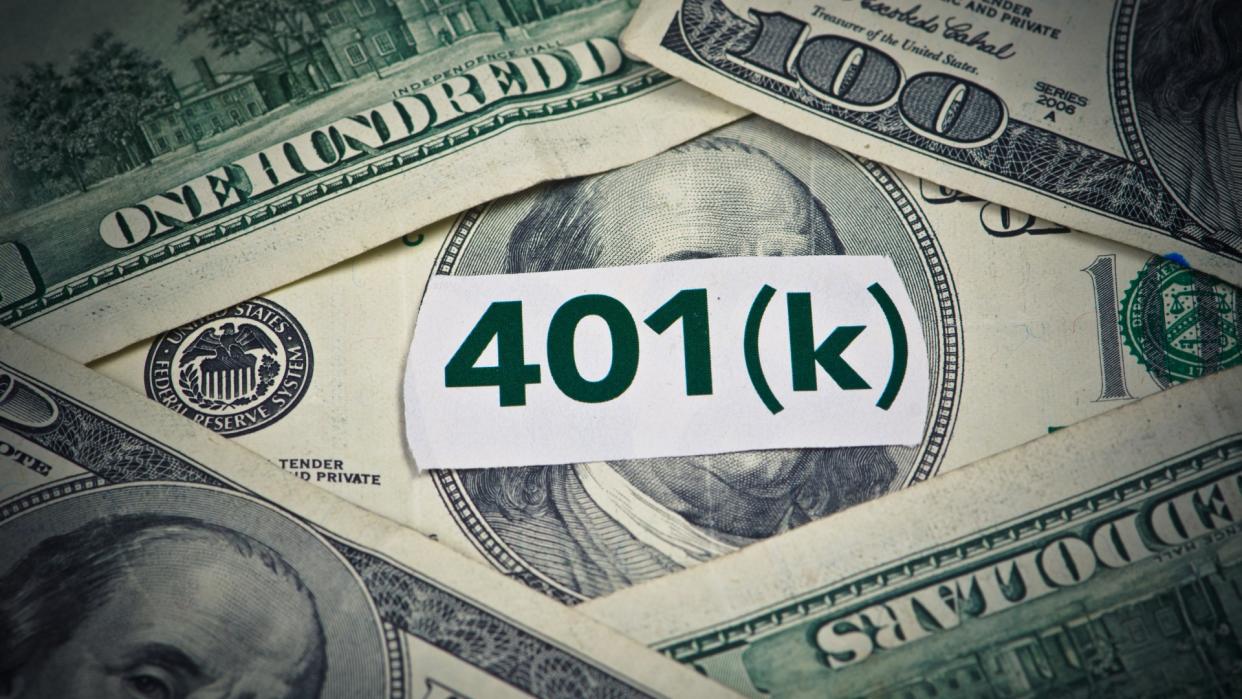9 Reasons Your 401(k) Is Underperforming, According to Financial Advisors

A 401(k) is a common retirement savings plan, typically sponsored by an employer, that helps people grow their retirement savings over time.
Learn More: 8 Signs You’ll Retire Wealthy
Find Out: One Smart Way To Grow Your Retirement Savings in 2024
If you check in with your 401(k) account only to find it’s underperforming based on expectations set by you or your financial planner, you might be alarmed. But don’t panic. For the average person, there’s a lot of gray area about what their 401(k) is invested in and how well these accounts are doing. However, there are some common reasons that your 401(k) might be underperforming.
Financial advisors explain what some of the most common reasons are.
Not Laying Out a Plan
“It can often be deflating when you hear of the S&P 500, Bitcoin, real estate and other assets hitting all-time highs only to pull up your 401(k) to see your balance bumping along,” said Jake Falcon, CRPC and CEO at Falcon Wealth Advisors.
Commonly, he said, this is because you probably didn’t go in with a plan. If you invested randomly in a 401(k) without advice, you can’t really be surprised when it doesn’t meet your expectations.
Once you have a plan established, however, Falcon said, you can determine what rate of return you need for your financial goals to be fulfilled.
“This makes it much easier to align your assets with your goals.”
Read Next: 3 Ways Upper Middle Class Retirees Stay Rich in Retirement
Not Knowing What Your Plan Is Invested In
It’s common for people who don’t have a lot of investing experience to choose default funds, but these are often not the best performers, according to Taylor Kovar, CFP, founder and CEO at 11 Financial.
“Consider diversifying your investments or choosing funds with a stronger performance history,” he recommended.
Additionally, Falcon recommended asking some questions about your investing strategy, such as:
“Are you too aggressive or too conservative based on your financial plan? What fees are you paying? Is there unnecessary overlap in your asset allocation?”
Overdiversification
Though experts are always recommending portfolio diversification, there is such a thing as overdiversification, according to Steven Neeley, CFP with Fortress Capital Advisors.
“[B]eing spread too thin usually leads to poor results. You don’t need to own every stock and bond in the world. Keep things simple. Unless you have very good insights into why a certain sector or asset class should outperform, don’t invest in it,” Neeley said.
Additionally, he suggested there is no reason for most people to own high-yield bonds, emerging market stocks, commodities or real estate in their 401(k) plans.
Overtrading
Another cause of underperforming 401(k) plans, which Neeley said is more common among men, is overtrading.
“Studies show that retail investors who trade more often underperform on average. If you notice that you trade your 401(k) more than a couple of times a year, you should take a step back and evaluate if your past trades were hurting or helping you.”
Chances are, these excessive trades were hurting your portfolio.
“Try your best to only re-evaluate your 401(k) once a year. These accounts are not meant for day trading.”
You’re Comparing Your Savings to Others
Another area to watch for, Falcon warned, is comparing yourself to others or thinking there’s a better investment.
“Don’t get caught up in the hype. If something sounds too good to be true it normally is. If you catch wind of your neighbor’s brother’s sister’s dog tripling their money overnight there may be a catch or a piece of missing information.”
The best thing you can do is have a plan, stay disciplined and check in with your financial advisor, he said.
You Don’t Understand Your Investments or Risk Tolerance
Another common reason for underperformance, according to Chris Urban, CFP, RICP with Discovery Wealth Planning, is a lack of understanding what you own inside your 401(k).
“If these are mutual funds, why are you picking this fund? What are your goals for your account? Is it long-term growth or income or low volatility and stability or something else?” he asked.
If you don’t have a goal, come up with one so that your fund selection matches it, Urban said.
“Otherwise, if your expectation is based on your goal but you select funds that do not fit this profile then that might be a reason your expectations are not being met.”
Furthermore, he recommended you get some education on what index the fund uses as a benchmark to measure performance and what the expense ratio of the fund is.
You’re Losing Money in Fees
A sneaky but common way that your funds are being whittled away often comes in the form of high fees, Kovar said.
“High fees can eat into your 401(k) returns over time. Make sure you know what fees you’re paying and see if there are lower-cost options available within your plan.”
You’re Not Getting Your Employer Match
For people whose employers match contributions, “make sure you’re contributing enough to get the full match,” Kovar said. “It’s essentially free money that can boost your savings.”
You Don’t Have a Long-Term Strategy
The market can be volatile, and reacting to short-term fluctuations might hurt your long-term returns, Kovar said.
“It’s important to have a long-term investment strategy and stick to it, adjusting only as necessary based on changes in your goals or financial situation.”
Risk tolerance changes over time, too, Kovar said.
“If you’re far from retirement, you might be able to afford taking on more risk for the possibility of higher returns. Conversely, if you’re close to retirement, you might want to shift towards more conservative investments.”
Always seek a professional’s advice if you’re uncertain how to make investing decisions.
More From GOBankingRates
This article originally appeared on GOBankingRates.com: 9 Reasons Your 401(k) Is Underperforming, According to Financial Advisors
